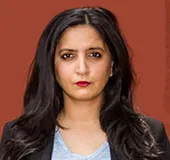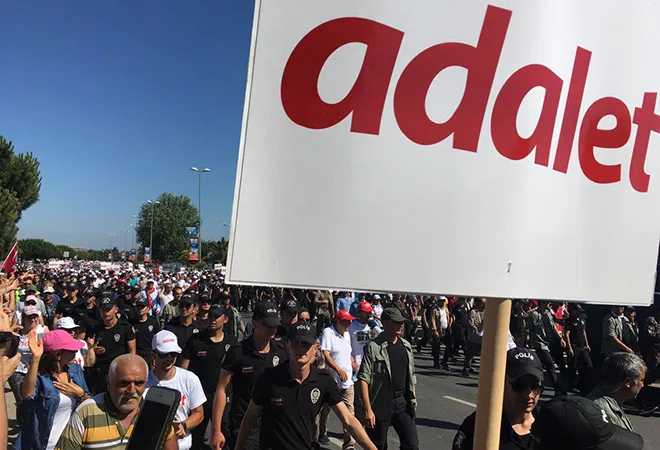
In Turkey, Racep Tayyip Erdogan has been in power since 2001. Over this one and a half decade, this country has seen a steady crumbling of institutions meant to uphold a democratic nation. Erdogan came to power through democratic elections but is now accused of functioning like a dictator. He uses victory at the hustings as a rationale to explain his actions while ignoring other aspects of a democracy which entails guarding against the supremacy of the political class through a system of checks and balances. Now, Erdogan’s authoritarian rule is subverting democracy and the resistance it is facing. His rule teaches a huge lesson to religious nationalists and secular elites of other democracies.
Emasculating the opposition
The blue of the Bosphorus was glittering under the mid-day sun and families were out grilling kebabs on the banks of the river. They seemed completely oblivious to the storm that was about to swallow the stretch in the next few minutes. Haq, Hukuk, Adalet (Rights, Law and Justice), chanted a sea of protestors. Waving the Turkish flag, hundreds and thousands of Turks were following Kemal Kılıçdaroğlu, the leader of the CHP (Republican Peoples Party), which is the main opposition party founded by Mustafa Kemal Ataturk — the father of the Turks. The 450 km march began in June 2017 broadly demanding an end to the incessant oppression inflicted by the conservative government of Racep Tayyip Erdogan and specifically against the incarceration of a Member of Parliament who was sentenced for 25 years in jail. His crime — leaking information to the press.
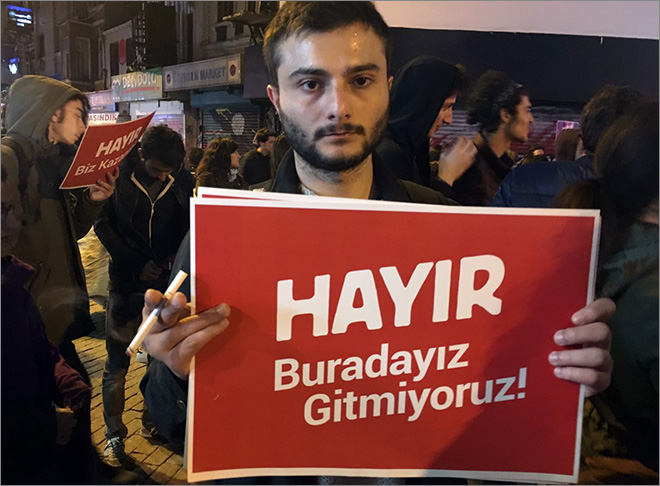
‘Erdogan is a despot,’ said C. Erdem. An interior designer, she participated in CHP’s ‘March for Justice’ to express her frustration with the Erdogan government that she accuses of tarnishing the social fabric of the country. ‘Half of the Turks are siding with him mistakenly on the grounds of religion, the remaining 50% of us are not,’ she told me in Istanbul last year.
Turkey is split down the middle between the secular followers of Ataturk who oppose Erdogan and his supporters who are mostly the Islamist nationalists. But ‘religious nationalists’ is a broad category with individuals professing varying degrees of religiosity and nationalism.
Kemal Kilicdaroglu’s idea was to reach out to those in this segment who can be won over to secular ideals. He wants to give a new lease of life to the secular CHP by reincarnating it as a liberal party, one that is ready to concede religious freedom. The party’s founding father — Ataturk — was a secular modernist, but not a liberal.
Since Ataturk, public space was dominated by the old elite who treated the religious with contempt and curbed religious freedom. Over the last few decades, his party — the CHP — weakened with corruption allegations, elitism and a stagnant economy. These factors pulled up Erdogan.
Holding similar views as the Muslim Brotherhood or MB, Erdogan is even nick named a ‘Muslim brother’ in the region. Like of MB, his ideology is to use the process of elections to establish Islamist rule — eventually authoritarian in nature. He is doing so by creating a new elite from the religious yet educated class which felt ignored or and ridiculed by the older elite of the CHP.
Since Ataturk, public space was dominated by the old elite who treated the religious with contempt and curbed religious freedom. Over the last few decades, his party — the CHP — weakened with corruption allegations, elitism and a stagnant economy.
Sarder Karagoz, the editor of pro-Government newspaper
Daily Sabah, is one of them. In an interview at his office, Karagoz told the author, “The rich Turks in rural areas are getting to the centre of power from the periphery. The new elite is educated and religious. The old elite are white Turks. They were Kemalists. They were very strong and controlled everything. The polarisation is the result of the conflict between the old and new elite.”
It seems Kemal Kilicdaroglu understands Karagoz and is making efforts on the ground to sway some of the educated and religious from the periphery to the centre. Like Islam Çilingir, who established an NGO to look in to the issues of the Muslims who found it tough to navigate the modern way of life ordered by Ataturk and imposed by the CHP.
At the ‘March for Justice’, Cilingir says, “CHP became a party of and for the elite and forgot about the rest. That will change now because Kilicdaroglu is a humble man.” He adds: “We follow Islam and we must be allowed to but we are not hard liners.”
Walking the middle path, between an extreme idea of religion and an extreme secular world view which condemns expressing faith, are Turks like Cilingir. The CHP has finally understood it offended this massive segment and is now trying to rope them in.
Çilingir is hopeful Kemal Kilicdaroglu can help resurrect the opposition by engaging with Turks like him who he believes are majority in the nation. Can Kilicdaroglu build a bridge between the conservative and the liberal, the religious and the atheist, the old and the new elite? It is going to be a tough battle.
On 13 December last year, Kilicdaroglu was targeted with an investigation for which he may be indicted. Preposterously, the probe is into the opposition leader’s questioning of the September referendum for executive presidency which Erdogan claims to have narrowly won but international observers widely criticised for irregularities. There is often just one explanation for such witch hunting — scare anyone who poses a challenge. Kurdish opposition leader, Selahattin Demirtas, has been in the jail for over a year without trial. In 2016, Erdogan striped at least 100 Members of Parliament of their immunity from prosecution. Some would argue, ideally parliamentarians must not have any such immunity, but Turkey’s case exemplifies if the leader is an authoritarian, it threatens democracy instead of curtailing privileges.
Walking the middle path, between an extreme idea of religion and an extreme secular world view which condemns expressing faith, are Turks like Cilingir. The CHP has finally understood it offended this massive segment and is now trying to rope them in.
It is an uphill task for any opposition party to mend fences with disagreeable electorate and correct its ways, but in Turkey it is a different ball game. More than a year and a half after the alleged coup attempt, which apparently warranted serious measures, the President of the erstwhile Ottoman empire has not lifted the state of emergency.
Chopping the long arm of the law
On 15 July 2016, a cleric named Fethullah Gulen — a former ally of Erdogan and now based in Pennsylvania — allegedly attempted a coup on the Turkish government with the help of the members of once the most powerful, armed forces. Interestingly, in the past Gulen and Erdogan seized power on the plank of fighting the same military elite.
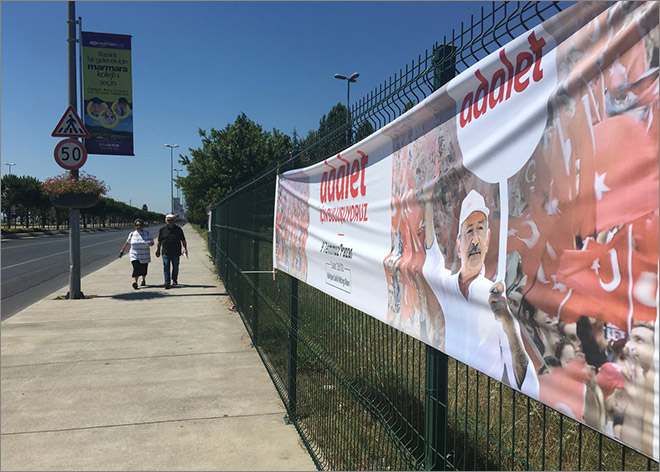
It provided the Turkish leader with an excuse to purge anyone undesirable through powers enabled by a state of emergency. Since then, the government has arrested some 50,000 people and dismissed 110,000 others from government jobs. More than 2,700 of them are judges and prosecutors.
The state of emergency is a naked power grab by the Turkish President. It allows him, through the council of ministers, to issue decrees which have the force of law bypassing parliamentary approval and judiciary oversight.
As recently as 24 December, Erdogan’s AKP (Justice and Development Party) issued two more state of emergency decrees bringing about changing the configuration of top judicial bodies, closing regulatory authorities and granting impunity to civilians who took part in thwarting the coup attempt.
Responding to the crisis, opposition leader Kemal Kilicdaroglu told the Hurriyat daily, “They are trying to make the judiciary the backyard of the ruling party, because they are building a legal system that would protect them.”
According to the Bar Human Rights Committee of England and Wales (BHRC), more than 500 lawyers have been arrested since the alleged coup and more than 1,350
are subject to criminal prosecution.
And, the state is making it increasingly difficult for lawyers to service their clients by incarcerating them in remote prisons, limiting visiting time and making them wait for hours before the meeting.
Tony Fisher, the chairman of the human rights committee of the BHRC, has also heard of regular complaints of torture from members of the legal community languishing in Turkish prisons.
Arrested lawyers is a group of Turkish advocates forced into exile after what they call the government’s mass crackdown on human rights defenders. On its website, arrestedlawyers.org, they say: “Under the state of emergency Erdogan Regime has also targeted the right to free association.” It adds, associations and foundations were shut down with all their assets confiscated without compensation.
Thousands of arrested are still waiting for a trial date and even the charge on which they have been thrown behind bars.
Kurdish leader Selahattin Demirtaş’s first hearing took place as long as a year after his imprisonment.
Menacingly controlling the executive, legislative and judiciary, Erdogan’s most lethal attack has been against the fourth pillar of democracy — the messenger.
“I was imprisoned because of accusations that I was running away from the judiciary. But for the last 13 months, the judiciary has been running away from me,” Demirtaş wrote on his official Twitter account via his lawyers on 7 December.
Menacingly controlling the executive, legislative and judiciary, Erdogan’s most lethal attack has been against the fourth pillar of democracy — the messenger.
Reinventing the narrative by suppressing media
Media creates the mandate, so gagging or controlling it has been the President’s special focus. He has done it by creating a new media elite and arresting or co-opting the others. Since the alleged failed coup, 156 media outlets have been closed and at least
177 journalists imprisoned.
As per Erdogan’s interview to German daily
Die Zeit on 5 July last year, “Of those, 176 were arrested on suspicion of terrorism.”
Most of the journalists Erdogan speaks of were part of the secular media tradition. Take for instance, Can Dundar, who is a well accomplished journalist and the editor-in-chief of the
Cumhurriyat Daily. He published/posted the footage showing the Turkish State Intelligence sending weapons to Syrian Islamist fighters for the Syrian war. You would think it is a scoop for any journalist, but in Turkey it turned out to be life threatening. For personal safety, Dundar was forced to seek exile in Germany.
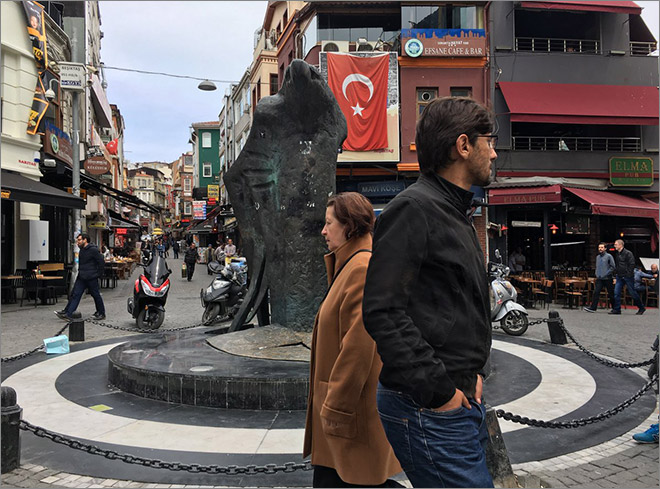
Amongst others is a German journalist with Turkish roots, Deniz Yucel. He has been arrested for interviewing a leader of the PKK or Kurdistan worker’s party. The PKK first sought independence from Turkey but later diluted it to autonomy. Turkey and several other countries like Germany consider it a terrorist organisation. Interviewing terrorists is as much a part of a reporter’s job as anyone else.
Mr. Erdogan does not agree.
He told
Die Zeit: “Public prosecutors in Istanbul have discovered that Deniz Yücel spoke with one of the PKK leaders in the Qandil Mountains, that he participated in meetings organised by the PKK, and that he conducted propaganda on behalf of the separatist terror organisation.”
On Zeit’s follow-up question emphasising that interviewing such figures is a part of the job and does not make the journalist their supporter, Erdogan says, “In my opinion, such a person is a supporter of terrorists because he knows that this person is a terrorist. What do you want to talk
about with a terrorist?”
These comments were read as highly dictatorial. Perhaps President Erdogan lacks a simple understanding of what is a democracy and what a dictatorship.
Turkey, case study
The power balance in the world has shifted in the recent years, tilting towards the right. The real threat though emanates from authoritarianism, irrespective of its ideological leanings. Over the last decade or so, several countries in the world have seen a rise in populist politics. Sometimes under the banner of religion, sometimes under the flag of nationalism and often under both. Turkey is a study for the members of the civic society in other democracies to understand how powers vested in an elected state can be abused to oppress citizens and what to watch out for. It is also a lesson for those who call themselves secular but hold the religious with contempt and refuse to cede equal space.
Photos used in the analysis are by the author.
The views expressed above belong to the author(s). ORF research and analyses now available on Telegram! Click here to access our curated content — blogs, longforms and interviews.



 In Turkey, Racep Tayyip Erdogan has been in power since 2001. Over this one and a half decade, this country has seen a steady crumbling of institutions meant to uphold a democratic nation. Erdogan came to power through democratic elections but is now accused of functioning like a dictator. He uses victory at the hustings as a rationale to explain his actions while ignoring other aspects of a democracy which entails guarding against the supremacy of the political class through a system of checks and balances. Now, Erdogan’s authoritarian rule is subverting democracy and the resistance it is facing. His rule teaches a huge lesson to religious nationalists and secular elites of other democracies.
In Turkey, Racep Tayyip Erdogan has been in power since 2001. Over this one and a half decade, this country has seen a steady crumbling of institutions meant to uphold a democratic nation. Erdogan came to power through democratic elections but is now accused of functioning like a dictator. He uses victory at the hustings as a rationale to explain his actions while ignoring other aspects of a democracy which entails guarding against the supremacy of the political class through a system of checks and balances. Now, Erdogan’s authoritarian rule is subverting democracy and the resistance it is facing. His rule teaches a huge lesson to religious nationalists and secular elites of other democracies.



 PREV
PREV
